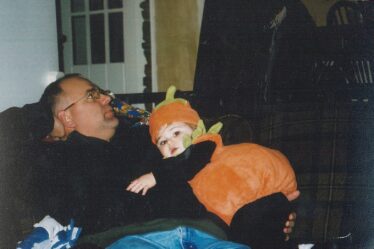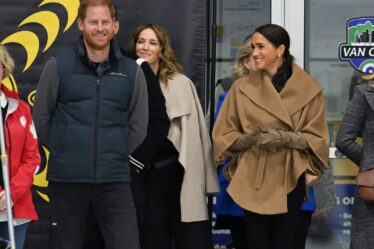Images and Article from www.complex.com.
Change is something that’s been on Pascal Siakam’s mind a lot. Maybe that seems obvious, given his play lately: The Toronto Raptors power forward has undergone a Super Saiyan transformation over the last couple months. After a tumultuous 2020-21 season plagued by injury, illness, and online criticism devolving into racist attacks, the 27-year-old is currently playing the best basketball of his career, defending at an elite level and shooting at a clip that could very well earn him all-NBA honours.
But the kind of change Siakam’s most interested in has little to do with his layup mechanics. The Cameroon native is genuinely passionate about making a positive social impact in Canada; last year, he launched the PS43 Foundation, a non-profit aimed at empowering underserved youth through education. Experiencing racism—both on social media and in real life—has only strengthened his resolve. “There’s not much I can do about trolls online,” Siakam tells Complex Canada. “I can just be in control of what I can control and continue to be an advocate for change and for love, for positivity.”
What sold him on headlining A Capsule for Change, the new streetwear collaboration by The Bay and the Toronto Raptors, was that 100 percent of net proceeds go to Hudson’s Bay Charter for Change, a Hudson’s Bay Foundation initiative aimed to accelerate racial equity in Canada. The campaign features Siakam and Raptors teammate Dalano Banton in a spot discussing what change means to them, along with a diverse mix of other impactful Canadians, like Raptors superfan Nav Bhatia and the Hijabi Ballers, a non-profit championing Muslim girls and women in sports.
The limited-edition collection consists of five cozy, drippy pieces—from fleece melange hoodies to a full-zip track jacket—embroidered with HBC’s famed stripes and the Raptors logo. Hudson’s Bay Foundation is committing $30 million over the next 10 years to organizations aimed at advancing racial equity, including Indspire, CEE Centre for Young Black Professionals, and MLSE Foundation.
Giving back, of course, is a duty that comes with assuming a leadership role in any sports franchise. But when talking to Siakam, you can tell it’s more personal than that. For him, it’s about reciprocating the immense love he’s felt from the Raptors community, and multiplying it until it engulfs all the hate out there, like Nick Nurse’s defense swarming a hapless guard. That’s change.
You’ve been playing some of the best basketball of your career lately. It’s really just a pleasure to see. How do you explain this amazing stretch you’ve been having? What’s changed?
I think there were a lot of things outside of my control that happened before. Now I’m just able to focus on the season. But, you know, there’s not much happening; I’m just going out there and playing ball, doing what we love. I think when you’re coming back from a surgery, you’re just wanting to be prepared. I’m prepared for the moment and want to be the best I can be. And I continue to work hard every single day because I feel like there’s always another level I can get to. For me, it’s just about playing ball, having a fun new team, and going out there and trying to get wins.
For what it’s worth, I think the NBA totally snubbed you by not naming you an All-Star. I know a lot of people agree with me.
[Laughs.] I think for me, it’s kind of over, right? All-Star happened and I just wanna turn the page. I just feel like there’s another level I can get to, and I just want to continue to get better as a player. Obviously, I wish I was an All-Star, but that’s over with. I’m focused on getting that playoff spot and just winning as a team. That’s more important and valuable than anything.
For sure. That’s everything. Well, let’s talk about this Capsule for Change campaign. What made you want to lend your support to it?
Just the fact that I play in Canada and that I play with the Raptors, and just having the opportunity to give back. I want to support racial equity. Also, it was just the fact that net proceeds are going towards helping that idea of racial equity. The whole thing together just felt like an opportunity, something to get behind. Having the Raptors behind it made it easier for me, because I know that through sports there’s so much change that we can bring to the world.
You’ve done a lot to support marginalized communities in Canada. This is just one example, but back at the beginning of the season, while you were injured and sitting courtside, you made a point to rock clothes by BIPOC-owned Canadian brands. What spurred that?
I think for me, just being drafted by the Raptors and being embraced by the community, I feel like it’s my duty to give back. And being in the position that I’m in, and being in a league that has so many views—you have a lot of eyeballs on the NBA—I have an opportunity to use that platform to bring change and positivity, and support brands that probably wouldn’t get that kind of support regularly. Being a part of that was always something that excited me. Obviously when I wasn’t playing any games, it was even easier to find something else to get attached to and find something fun to support the community with. That was always something I wanted to do.
Creating the PS43 Foundation was also more of that. It was me wanting to continue to help, and knowing that basketball is important, but at the same time, there’s things far more important than that. I just want to continue to bring change and have an impact on the community.
“Just knowing how terrible the world is—that sometimes people can go through a lot and we are so quick to be judged in our society with the Internet being so consuming, and how disgusting that is sometimes—for me, I just want to be the change. I want to be able to stay positive and spread love. ”
You mentioned being embraced by the community. How soon into your career with the Raptors did you feel embraced by the community in Toronto?
I think I felt embraced from the beginning. Even playing in the G League and winning a championship there, and just doing things in the city, you feel the power there. There was a lot of love that was given to me. And then winning an NBA championship here, that was just an amazing moment. Just seeing that love and support, I want to continue to give back and continue to be not only a better basketball player, but a better man.
That’s dope. You’ve spent several years here now and I’m sure you’ve had enough time to hang out in the city and really take it in. What stands out to you about Toronto?
The diversity was something that definitely attracted me from the beginning. Just seeing people from all over the world. Even just being in the arena, you could just see people from literally everywhere. It’s such an awesome thing that people can come together through sports and just be all together. It’s something that’s special about Toronto. And I think that even the food, the culture, the streetwear, and clothes, and style, there’s just so many different things here. It’s so diverse that it’s something that makes it special. It’s definitely different [than other cities]. I think coming to Toronto, you can definitely feel that there’s a different vibe. There’s so many different cultures put together. It’s just different.
What are some of your favourite restaurants in Toronto right now?
One of my favourites has always been School, which is close to our practice facility. I used to go there all the time. Cactus Club is one that I really like too. There’s just a lot of different foods from a lot of different places. You can have Jamaican patties or you can go somewhere and do Asian and Thai or whatever. It’s just super fun and exciting eating here.
This new campaign you’re part of is about advancing racial equity. Why is that important to you, personally?
Because coming from where I come from, there’s a lot of inequality. And just being from Africa and coming to a different place, there’s so many different things you have to deal with. And then for me, I’ve just always felt like being a part of a community and I think basketball was always something that made that easy, because you have people from different countries all together, you know? We come together as a team and we try to win games. That’s how I see the world: We can all come together and be one and help each other spread love and positivity. For me, that’s what this is about. I’m all for it.
As you mentioned, you emigrated from Africa to North America, which must have been quite a culture shock. Can you recall a time you faced racial discrimination back then? How did it affect you?
I think for me, just being Black and walking around is hard. I don’t think it’s hard [to think of an example]. Just being called Black while walking down the street, like I think that’s enough, because some people will look at you a certain way. And for me, that’s something you have to deal with every day. For me, just coming to the U.S. and having an accent and being laughed at is enough. Just dealing with things like that. People making fun of you to your face. There’s just simple things like that that happen every single day. We could use a little more loving and caring for one another.
“I feel like, for me, you can’t really stop somebody from being racist. I can’t control what you do. I can control what I do and I can control what my family does. So I can at least try to start small, knowing that it’s gonna take one person at a time.”
I know more recently, you received some hateful, racist comments online. That’s really disgusting. I’m sorry you had to go through that.
I think for me, it’s hard because that’s the Internet; that’s the new era we’re in and the world we live in. And it’s tough. But I think what I can do is do things like this. Just try to bring positivity and get behind things that kind of encourage that. There’s not much I can do about trolls online. I can just be in control of what I can control and continue to be an advocate for change and for love, for positivity. And for me, that’s something that I learned from that [experience]. I learned not to get into the negative space that people wanted me to get into—just getting out of that and rising above that. That’s my attitude.
A word that keeps coming up is love. You’ve mentioned it a few times during this conversation, and I know your ‘P.S.’ logo is in the shape of a heart. Why does it all come back to love for you?
Because I think it’s super important. Just knowing how terrible the world is—that sometimes people can go through a lot and we are so quick to be judged in our society with the Internet being so consuming, and how disgusting that is sometimes—for me, I just want to be the change. I want to be able to stay positive and spread love. I think that we all need it, you know? And that’s something that’s kinda easy to do. You know, just love one another, help each other, encourage each other. That’s something important that we can all do, no matter where you’re from, no matter where you are.
Reading online comments is part of my job, and it gets very upsetting seeing the racist things being written on the Internet, especially coming from Canadians. There’s this odd notion that racism doesn’t exist in Canada—that it’s only in the States.
Yeah, that’s definitely naive. I think racism and inequality is everywhere. It’s just all over the world and that’s something that we all need to work on. We all need to look at ourselves and look at other people and ask, how do we contribute to that? Are we a part of that or are we a part of the change that is needed? I think that’s the question we gotta ask ourselves.
For sure. But then it’s like, how do we deal with all these racist people living among us, who seem to be getting more vocal? How do we—
I think, yeah, that’s such a hard question. For me, education is always a part of it. I mean, I’m a man of faith and I believe that people can change. And I also believe that you can only really control what is within your [reach]. I feel like, for me, you can’t really stop somebody from being racist. I can’t control what you do. I can control what I do and I can control what my family does. So I can at least try to start small, knowing that it’s gonna take one person at a time. We gotta come together. It’s gonna be tough, some people might not get on board, but that’s part of life. And I think the more people we have on board, the better, for society in general.
That’s very true—focus on what’s within your reach. You know, back in 2020, when the Black Lives Matter movement was really exploding internationally, NBA players came out and used their platforms to advocate for social justice. I know you were very vocal yourself. What do you think has changed since then?
I think there was some change, with the voting process and the things that happened with that presidency back then and all those different things. I think there were some things that happened. You know, we’re definitely far from the world being all lovey-dovey, but at the same time, I think we took some steps forward. I think that we made an impact by just using our platform, whether as the NBA as a whole, or the Toronto Raptors, or players individually in their communities. And it’s hard to look at it in a way where it’s like, “Aw, we have to change the whole word.” I think it just comes down to your community, where you’re from, the people in your household, and things like that. We can have it spread around the world that way, instead of thinking of it as changing the whole world at once.
Article shared from www.complex.com



